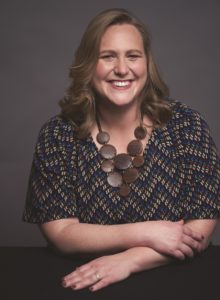“The profound thing that has happened over the past year is that we, as individuals in society, have realized that we can’t really go back to the way things were before — that we need to imagine a different future for ourselves, both as a culture and as a community,” says Sharon Polli, the new executive director of the Fine Arts Work Center. “To me, artists sit at the center of that conversation.”
Because FAWC is about supporting emerging voices, and Provincetown is a place where people profoundly understand the importance of artists, Polli adds, “It’s an exciting place to be at this moment in time.”

Polli replaces Richard MacMillan, who resigned last year after a letter from the 2019-2020 FAWC fellows accusing the institution of racism elicited an apology from the board for being “complicit with the structural racism that plagues our country.” At the same time, new information emerged about his involvement in financier and convicted sex offender Jeffrey Epstein’s donations to M.I.T. when he worked there.
Polli joined FAWC remotely from New York City in May and arrived in Provincetown officially over Memorial Day weekend. Her family joined her over the Fourth of July. “Now my husband and two kids and our dog are all here and really enjoying being part of the Provincetown community,” she says.
Polli’s daughter, 11, and son, 8, will both attend the Provincetown Schools. “They’re very excited to walk home past the candy shop every day,” she says, “and are already asking me for an allowance raise to subsidize their candy habit.”
Being a working mom is one of the biggest challenges she has faced, Polli says. “How do you balance the demands of a lot of late nights, a lot of early mornings, and bring your children along and show them that this is something we do together?” she says. “We go to art openings together. We go to the jazz performances together, while also sneaking away to Herring Cove on a Sunday and not answering emails.”
Polli has degrees in theater and sociology from Carleton College in Northfield, Minn. She then moved to New York planning to pursue a degree at NYU in performance studies, which she calls “the intersection of both” theater and sociology. She decided, however, that such a degree was not the most strategic. “I ended up working in arts administration and have been doing so ever since,” she says.
Polli says she enjoys “working in arts and culture organizations and thinking about how they sit in broader dialogue about the future of the community and the society in which they’re working.”
She was most recently executive vice president of BRIC, a culture and media nonprofit in Brooklyn, N.Y. The connection to Aziz Isham, the new executive director of Twenty Summers and former executive producer at BRIC, is mostly “coincidental.” But when Isham took on his new role in the fall, “I think I secretly was just a little jealous,” she says. Perhaps it put Provincetown on her radar. “It’s been so great to have a colleague here who is already making an impact,” she says.
As communities, Brooklyn and Provincetown are “different, but kind of similar,” says Polli. “This is a small parcel of land that has issues of affordability and preservation and access. That’s all very familiar, coming from New York City. But, at the same time, being in a rural area is so interesting to me.
“BRIC is a 40-plus-year-old cultural institution in the way that the Fine Arts Work Center just celebrated our 50th anniversary,” Polli continues. One difference is that BRIC is “in the heart of Fort Greene, a historically Black artistic community,” which brings with it different dynamics.
“We were really proud to have kept the staff whole throughout the pandemic,” says Polli when asked about FAWC’s finances. “Thanks to things like the CARES Act — which really centered arts and culture institutions through things like the PPP loan and employee retention tax credit — we’re on solid footing.”
One message she wants to convey to donors is “how we tell our story around being an institution committed to artist housing and work space at a time in this country when that’s in such short supply.”
Some past fellows have come back and enriched the community, like Esteban del Valle, who recently completed a mural at Marine Specialties as part of a Provincetown Public Art Foundation project. “We run right into that affordability question,” says Polli. “The Work Center has programs that enable people to come back as returning residents, as well as programs that invite mid-career artists. But for those artists who really want to stay and build a life here, it’s a challenging question.”
FAWC just announced its new class of fellows who will arrive in October: 10 visual artists and 10 writers from around the country and the world. The campus renovation project is scheduled to be finished by then, and Polli is “confident” that it will be.
How is the Work Center addressing issues of racism and complicity? “We’re really looking internally first,” says Polli. “We have a wonderful diversity, equity, and inclusion committee that’s made up of staff, former fellows, and board members.” She is looking to create more “transparency, accountability, and dialogue,” she says.
“The question I keep asking myself is, how do we create the most welcoming and generative environment for the fellows who are coming to the Work Center and to Provincetown?” Polli continues. “We benefit so much from the artists who come to this community through the fellowship, and we want to make sure that we’re able to receive them in a way that addresses their needs.
“I have felt so embraced and welcomed,” says Polli of her arrival here. “So many people have said how deeply they’re rooting for me. How do we recreate that same experience that I’ve been so gratified to have gone through for the new fellows who are coming?”
